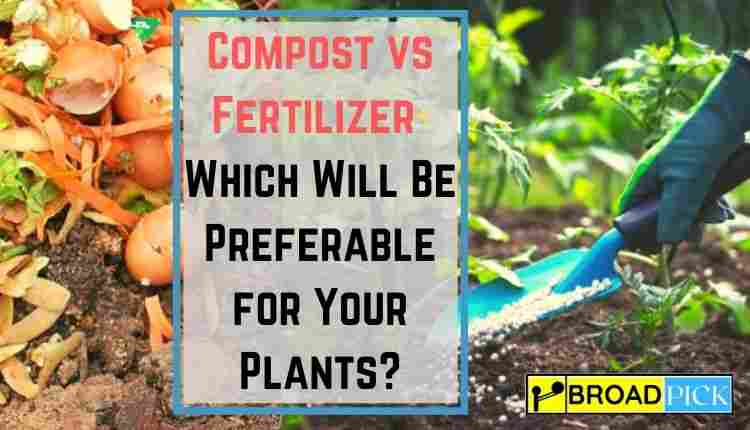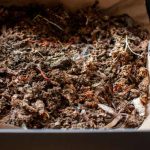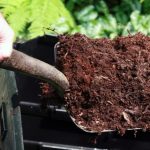Well, not exactly. While compost provides nutrients to your plants and can be a great organic option, it falls short of being a full-fledged fertilizer due to its lower nutrient content.
Compost can reduce the need for fertilizer but not whole. Compost contains microbes that encourage healthy plant growth. It also increases the amount of organic matter and nutrients such as nitrogen in soil. This can reduce the need for synthetic fertilizer.
To know more in detail, let’s dive into the details of how compost and fertilizer differ and when to use each for your crops
What Exactly A Compost Do?
Using compost as a fertilizer provides numerous benefits for your garden.
Compost enriches the soil with essential nutrients, improves soil structure, retains moisture, and helps suppress diseases and pests.
As a result, you may need little additional fertilizers when using compost in your garden.
Credit: www.gardeningchannel.com
What Is The Nutrient Content Of Compost?
In total, compost has about 3–5% of these nutrients in its weight, which helps plants grow strong and healthy. While it’s not super high in nutrients compared to other plant food, it’s still really good for your garden.
Also, it has special things called micronutrients that plants need in small amounts. So, using compost in your garden is like giving your plants a nutritious meal that makes them happy and helps them grow well.
Here is a brief nutrient that a c compost has-
| Nutrient | Amount in Compost |
| Nitrogen | About 2% |
| Phosphorus | Around 0.5–1% |
| Potassium | About 2% |
| Potash | Similar to nitrogen |
| Phosphate | Roughly 0.1% |
| Ammonium | Approximately 741.9 mg/kg |
| Nitrate | About 291 mg/kg |
| Potassium (as K2O) | Around 1.13% |
Best Practices For Using Compost And Fertilizer Together
To ensure the best results for your plants, it’s important to understand how to effectively use compost and fertilizer together.
Compost is like a natural vitamin for your garden, offering nutrients and enhancing soil quality, while fertilizer provides a more concentrated, specific nutrient boost.
For optimal growth, start by mixing compost into your soil before planting, as it enriches the soil structure with organic matter.
To strike the right balance, aim for a compost-to-fertilizer ratio of 3:1.
This means for every three parts of compost, add one part of fertilizer. This harmony ensures your plants get the essential nutrients without overwhelming the soil, promoting their overall health.
Does Compost Work Better Than Fertilizer?
Compost and fertilizer each have unique advantages. Compost provides a comprehensive mix of nutrients and can enhance soil health, minimize plant diseases, and reduce the reliance on synthetic fertilizers.
It also releases nutrients slowly over several years.
On the other hand, fertilizer delivers essential nutrients for optimal plant growth, and it’s gentler than chemical alternatives, preventing overfeeding. It’s important to note that compost and fertilizer aren’t interchangeable.
Fertilizers can’t enhance soil structure, and sometimes, specific nutrients missing in compost may be necessary.
For instance, to match the nutrient content of 10 pounds of 10-10-10 fertilizer, you’d require around 70 pounds of compost. Both have their roles in gardening, serving different purposes.

Will Compost Replace Fertilizer?
Composting and fertilizers serve distinct purposes in gardening. Compost enhances soil quality by improving its structure, promoting drainage, and increasing aeration. It fosters the growth of beneficial soil organisms, which contribute nutrients to plants.
However, compost’s nutrient content is relatively low, typically around 1.5% for nitrogen, phosphorus, and potassium.
On the other hand, fertilizers are rich in essential nutrients like nitrogen, phosphorus, potassium, and various micro-nutrients.
Nevertheless, they don’t have soil-enhancing qualities.
To achieve optimal plant growth and vibrant vegetation, it’s advisable to combine compost and fertilizer, particularly for lawns, vegetables, and fruit-bearing trees and shrubs that often require the extra nutrient boost provided by fertilizers.
Frequently Asked Questions
Is Compost Alone Enough Fertilizer?
Compost, while valuable for enriching soil, may not suffice as the sole fertilizer for achieving optimal plant growth. Compost primarily serves as a soil conditioner, enhancing soil structure, promoting water retention, and encouraging beneficial microbial activity.
However, it contains relatively low levels of essential plant nutrients, with an average composition of about 1.5% nitrogen, phosphorus, and potassium (NPK).
In comparison, plants typically require higher concentrations of these nutrients for robust growth.
Can You Just Use Compost As Soil?
Using compost as the sole soil source is generally not advisable, as compost lacks the essential nutrients necessary for plant growth. While compost can improve soil quality and create a conducive environment for plants, it cannot provide vital macronutrients like nitrogen, phosphorus, and potassium in sufficient quantities. Attempting to use compost alone as soil may result in nutrient deficiencies, stunted growth, and poor plant performance.
Is compost better than fertilizer for grass?
Compost surpasses synthetic fertilizers in several ways. Composting not only contributes to the suppression of plant diseases and pests but also decreases the reliance on artificial fertilizers. (According to the U.S. EPA )
Moreover, it fosters improved soil health, which is fundamental for the optimal growth of plants, including grass. In addition to these advantages, composting reduces greenhouse gas emissions, making it an eco-friendly choice for promoting the health of grass and the overall environment.
Conclusion
Compost can provide many beneficial nutrients for plants and improve soil health. It is a natural alternative to commercial fertilizers, but may not always supply all the necessary nutrients. Soil testing is important to determine if additional nutrients are needed.
Reference:
https://www.compostguide.com/do-i-need-to-fertilize-if-i-use-compost/ https://organiclawnsbylunseth.com/compost-vs-fertilizer/ https://www.thespruce.com/compost-vs-fertilizer-5216779 https://en.wikipedia.org/wiki/Compost

I am a graduate of Bangladesh Agricultural University, where I delved into various agricultural disciplines, equipping me with a profound understanding of agriculture. Beyond academics, I have hands-on experience in gardening and crop cultivation. My passion is to embrace sustainable farming and horticulture. With a BSc in Agriculture, I am dedicated to promoting environmentally conscious and efficient agrarian practices.
Bachelor of Science (BSc) in Agriculture (Hons.)
Master of Science. (Sustainable Agriculture & Food Security ) (MS)
Bangladesh Agricultural University




